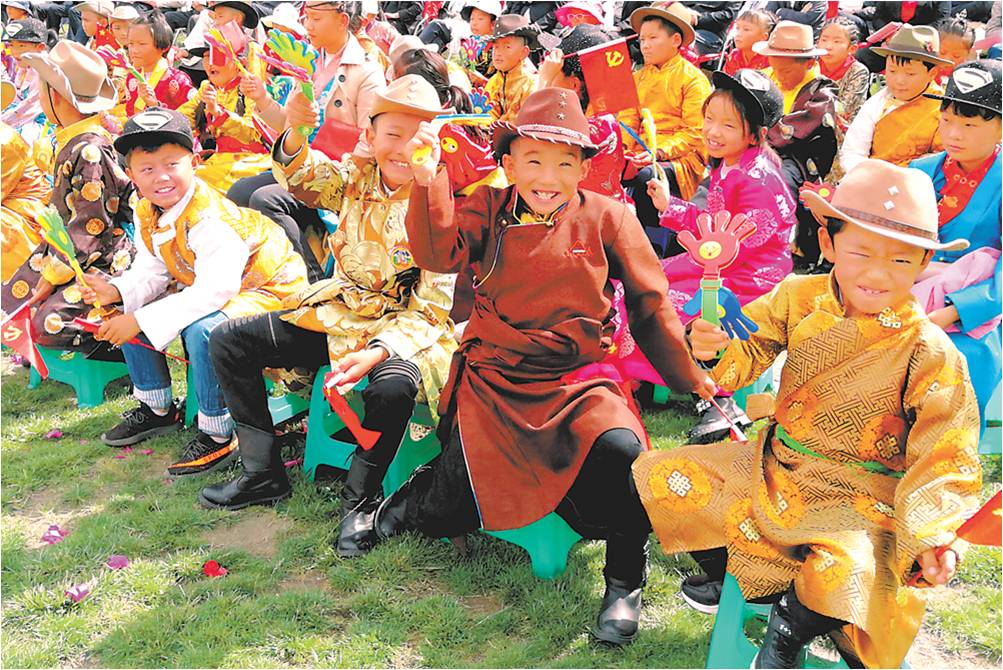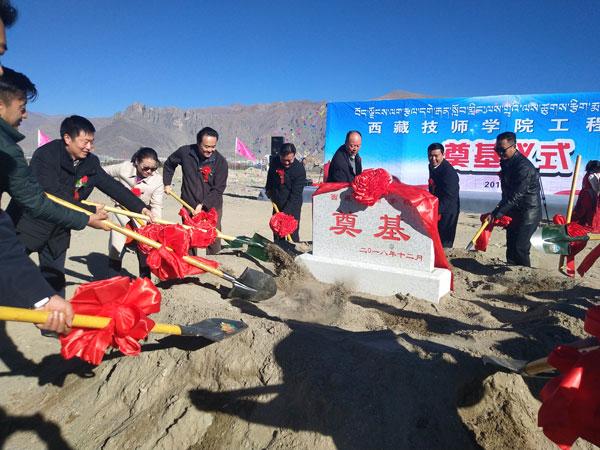Yunnan Bai ethnic silversmiths "clanging" for more than 20 years in Tibet
At the foot of the mountain in Dokde Township, a suburb north of the ancient city of Lhasa, capital city of southwest China's Tibet, there is an unnamed street about one kilometer long. On both sides of the street are all kinds of handmade silverware and bronze shops. Each day from 10:00 a.m. to late at night, the street is like a special metal instrument with clanging sounds all around.
The street is known by some Lhasa people as the ethnic Bai Silversmith Village. The majority of the silversmiths here come from Heqing County in Bai Autonomous Prefecture of Dali, southwest China's Yunnan Province. The Heqing Silverware Forging Craft, one of China's national intangible cultural heritages, is over 500 years old and is well-known in Yunnan. In the 1990s, a small group of silversmiths from Heqing came to the Qinghai-Tibet Plateau in order to make a living, and they established themselves in Lhasa.
"Behind here is Najin Mountain. We have Phoenix Mountain in our hometown." 64-year-old Hong Zhongshan uses a steel chisel to pound a piece of bronze, telling reporters that he came to Lhasa in August 1997, at the age of 43. He was forced to leave his hometown for his livelihood.
Hong Zhongshan said that in 1997, two of his four daughters were in middle school and one was in high school. The total yearly tuition fees for his three daughters totaled more than 20,000 yuan (2,909 US dollars).
"At the time, I heard that the price of handmade silverware and bronze in Tibet was much higher than that in Yunnan, so I decided to come to Lhasa to try it." Hon Zhongshan recalled that he arrived in Lhasa after a seven day and seven night bus journey.
Tibet Stories

What has the Qinghai-Tibet Railway brought to Tibet?
On July 1, 2006, the Qinghai-Tibet Railway opened to passengers, ending a history of no rail...
Latest News
- Egypt uncovers intact 4,400-year-old pharaonic tomb near Giza pyramids
- UN climate conference adopts rulebook for implementing Paris deal
- Service of Chinese Americans in World War II to be formally recognized
- Germany suffers severe Santa shortage as Christmas draws near
- 7-year-old in good health, border agents said; then she died






